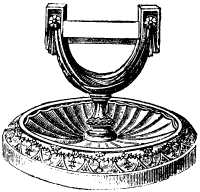Chapter III: LONDON IN THE OLD DAYS
Knocking about town as I then did, I naturally got to know many people, especially as I was still unmarried.

For example, Lady Mayfair, the present Queen of Society, I remember as a little toddling child who climbed on my knees.

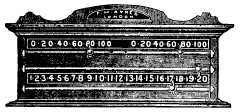
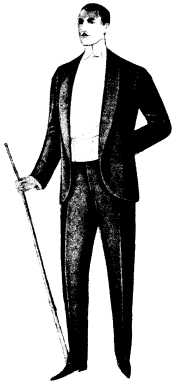 I knew Monty
Wotherspoon, the amateur pyramid champion, intimately.
I knew Monty
Wotherspoon, the amateur pyramid champion, intimately.
Monty was one of the old dare-devil crowd. I remember the sensation he caused when, for a wager, he drove a hansom from the Guards' Club to Hurlingham without reins.
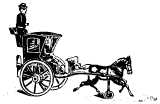
Poor fellow, his end was very tragic. He was poisoned by his wife. She had rinsed the glass and removed, as she thought, all traces of the poison; but the Law was too much for her.
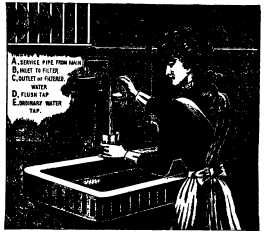
The autopsy revealed unmistakable signs of the deadly drug.
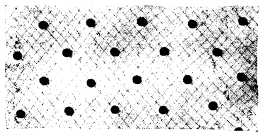
Then there was the Earl of Crewett, who was never seen out of riding breeches: a veritable centaur.
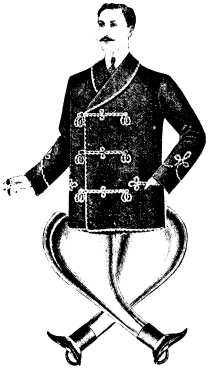
It was Lord Crewett who won the Derby with "Salad Days."
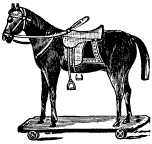
The eccentric Sir William Goosepelt was a friend of mine. Among his other odd ways he often indulged in the luxury of a treacle bath.
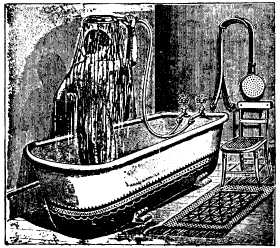
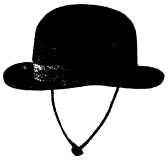 Sir William's ears
were so large that he required a chin-strap to keep his hat on.
From this circumstance he earned an unenviable reputation for
impoliteness towards ladies.
Sir William's ears
were so large that he required a chin-strap to keep his hat on.
From this circumstance he earned an unenviable reputation for
impoliteness towards ladies.
His wife, dear Lady Goosepelt, was a chronic invalid, and lived at Bournemouth in a charming villegiatura.
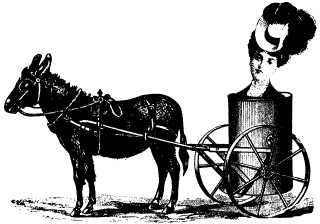
Sir William's beautiful mansion was burnt to the ground. It was, I remember, on Sunday, the 23rd.
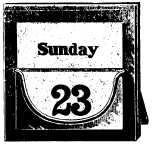
The alarm was given, but no horses could be procured, so the brigade was at a standstill.
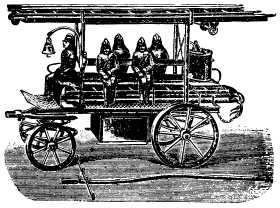
Another man about town at that time was Sir Henry Punt. He and his wife (a beautiful woman) were probably the most inveterate gamblers living.
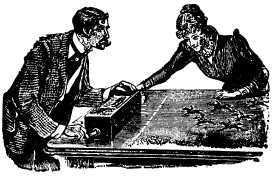
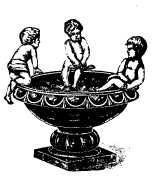 Lady Punt was one of
the few women of fashion who had received the King's Bounty, and I
often watched her charming brood bathing in the marble basin in
their grounds, which adjoined mine.
Lady Punt was one of
the few women of fashion who had received the King's Bounty, and I
often watched her charming brood bathing in the marble basin in
their grounds, which adjoined mine.
Sir Henry (who died only last year) had a weakness for growing mushrooms for harvest festivals.
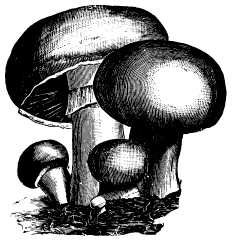
The Duke of Pudsey, in spite of his great wealth, was of a penurious nature. He was also something of a kleptomaniac, and after his death an extraordinary collection of umbrellas which he had removed from the club stand was discovered.
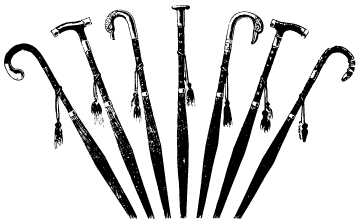
On one occasion he was actually found concealing the watch of one of his guests,
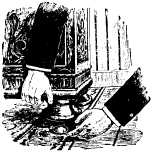
None the less (such is human tolerance of the great), when the Duke came to die a magnificent memorial was erected to him.
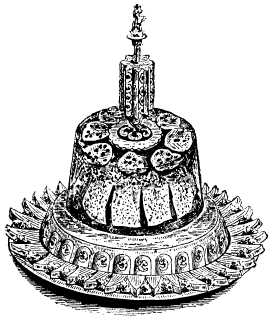
His son's wife, Lady Clipstone, was one of the most determined autograph hunters I ever met.
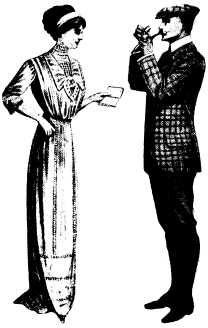
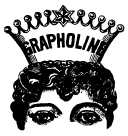 The
Duke's only daughter, who became Lady Grapholine Meadows, was never
seen without her coronet, which was a masterpiece of the jeweller's
art.
The
Duke's only daughter, who became Lady Grapholine Meadows, was never
seen without her coronet, which was a masterpiece of the jeweller's
art.
His other son, Lord Bertie, married the fashionable sister of Lord George Sangazure.
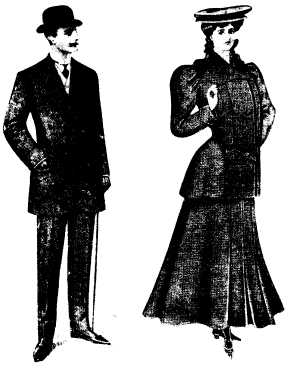
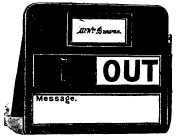 It was about this time
that I made the acquaintance of William Browne, of London, whose
peculiarity it was to be always out. It is conjectured that during
a period of many years he was never at home.
It was about this time
that I made the acquaintance of William Browne, of London, whose
peculiarity it was to be always out. It is conjectured that during
a period of many years he was never at home.
Sir William Broadfoot, the well-known R.A., was a frequent visitor. He would often go out sketching, but was so absent-minded that he forgot his paints.
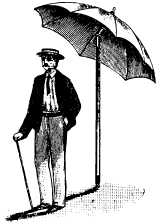
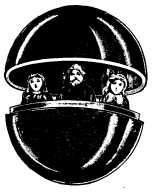 Then there was
Lord Highlow, who constructed a dirigible of his own invention, in
which he made frequent ascents from Brooklands, accompanied by his
two beautiful daughters.
Then there was
Lord Highlow, who constructed a dirigible of his own invention, in
which he made frequent ascents from Brooklands, accompanied by his
two beautiful daughters.
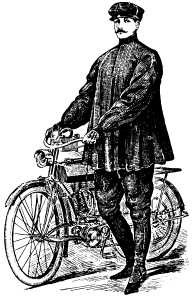 Stanley Herne, the motor cycle
champion, was also a friend of mine. Alas! he rides no more, not
since that terrible collision with a motor bus. There lay Stanley,
a ruin of what he was, while the heavy vehicle, crowded with happy
passengers, all unconscious of what had happened, rolled on.
Stanley Herne, the motor cycle
champion, was also a friend of mine. Alas! he rides no more, not
since that terrible collision with a motor bus. There lay Stanley,
a ruin of what he was, while the heavy vehicle, crowded with happy
passengers, all unconscious of what had happened, rolled on.
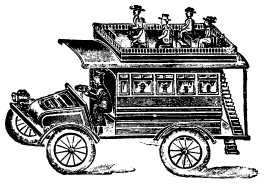
I knew slightly Sir Algernon Slack, the millionaire, whose peculiarity it was never to carry an umbrella.

One of this strange man's peculiarities was that he could not endure the presence of a cat.
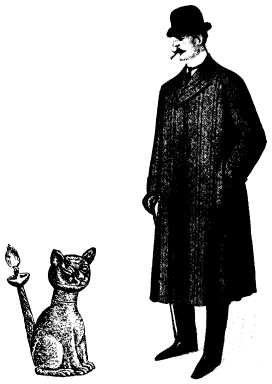
His end, it is thought, was quickened by varicose veins in the right hand.
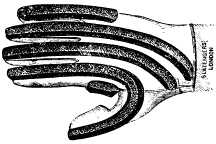
He died in 1901, and was buried next his wife.
